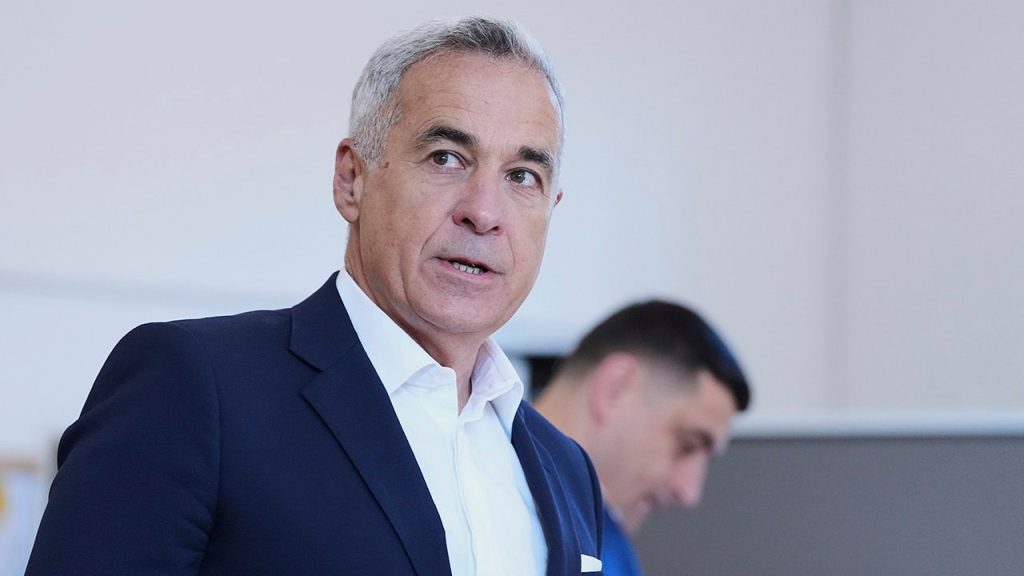Romanian political figure Calin Georgescu has announced his retirement from politics following a controversial disqualification from the presidential election rerun scheduled this month. After a strong initial showing in last year’s election, which was later annulled due to allegations of electoral misconduct, Georgescu has opted to step back from the political landscape altogether. In a recent statement, he described his decision as a conclusion to a significant chapter in Romania’s sovereignist movement.
| Article Subheadings |
|---|
| 1) Background of Calin Georgescu |
| 2) Court Ruling and Electoral Annulling |
| 3) Criminal Charges and Controversy |
| 4) Public Reaction and Support |
| 5) The Future of the Sovereignist Movement |
Background of Calin Georgescu
Calin Georgescu has been a prominent figure in Romanian politics, particularly known for his populist stance as well as his role as an independent candidate in the presidential elections. His candidacy gained traction late last year, wherein he secured a notable victory in the first round of voting. However, his political journey has been marred by controversies, particularly regarding accusations of electoral violations that have sparked significant discourse both locally and internationally. His political agenda primarily focused on national sovereignty and an anti-EU sentiment, resonating with a segment of the Romanian populace seeking to reclaim a sense of national identity amidst broader European integration pressures.
Court Ruling and Electoral Annulling
The Romanian political landscape took a significant turn when a top court ruled to annul the results of the first round of the presidential election. This decision was primarily based on mounting allegations of electoral fraud and potential foreign interference, notably from Russian entities. As a consequence of this ruling, Georgescu was barred from participating in the second round of the elections slated for May this year. The court’s decision was viewed by many as unprecedented and sparked accusations from Georgescu and his supporters that the ruling was politically motivated. The annulment came amid assertions from various officials that foreign disinformation campaigns had compromised the integrity of the electoral process.
Criminal Charges and Controversy
In addition to his electoral challenges, Georgescu now faces serious criminal charges including allegations of inciting efforts to undermine the constitutional order, fostering extremist organizations, and mismanaging campaign finances. Prosecutors launched investigations into these accusations this February. The timing of the charges raised eyebrows and prompted comparisons to political tragedies seen in other countries, such as the legal challenges faced by former President Donald Trump. These developments sent shockwaves through Romania, shedding light on the intersection of law and politics in a country still grappling with its post-communist identity. Georgescu has publicly dismissed the charges, characterizing them as attempts to silence dissent and alter the political landscape in Romania.
Public Reaction and Support
Georgescu’s retirement announcement stirres a mix of reactions. While supporters have continued to rally behind him, echoing sentiments of frustration and disappointment toward what they perceive as an unjust political system, critics argue that his ideas pose risks to democratic values. Earlier this year, thousands gathered in Bucharest to show their support, demonstrating robust engagement among his base. Protesters held banners proclaiming their allegiance and expressing discontent with the ruling political elite. The contrast in public opinion illustrates the deep divides within Romanian society, revealing a faction that feels alienated from the mainstream political discourse and yearns for representation.
The Future of the Sovereignist Movement
With Georgescu choosing to withdraw from active political participation, questions arise regarding the future of the sovereignist movement in Romania. He indicated that this decision marks the end of an era for a movement aimed at promoting national sovereignty amid European pressures. Many are left contemplating what lies ahead for this faction of Romanian politics, especially as the recent election underscored the complexities surrounding national identity within the context of EU membership. Political analysts suggest that while Georgescu’s exit is a significant blow, the ideals he championed may continue to resonate, potentially giving rise to new figures who align with his cause. The ongoing discourse may represent a critical juncture as Romania navigates its relationship with the European Union and refines its national identity.
| No. | Key Points |
|---|---|
| 1 | Calin Georgescu announced his retirement from politics after his disqualification from the recent presidential election. |
| 2 | His victory in the first round of elections was annulled due to allegations of electoral violations and foreign interference. |
| 3 | Georgescu faces serious criminal charges that have intensified debates about the intersection of law and politics in Romania. |
| 4 | Public protests supporting Georgescu indicate significant grassroots engagement and dissatisfaction with the political establishment. |
| 5 | His retirement raises questions about the future of the sovereignist movement amid ongoing discourse in Romanian society. |
Summary
Calin Georgescu’s recent withdrawal from the political arena signifies a pivotal moment in the landscape of Romanian politics, particularly for those advocating for national sovereignty. As electoral controversies and criminal charges loom over his legacy, the repercussions of his departure will likely be felt in the ongoing narrative surrounding Romania’s identity and its relationship with the European Union. The unwavering support from his followers suggests that while one chapter may close, the underlying sentiments advocating for change persist, providing fertile ground for future political movements.
Frequently Asked Questions
Question: What led to Georgescu’s retirement from politics?
Georgescu announced his retirement after being barred from participating in the presidential election rerun due to a court’s decision that annulled the results of the previous election.
Question: What were the allegations that caused the annulment of the election results?
The election results were annulled owing to allegations of electoral violations, including potential foreign interference, particularly from Russia.
Question: What are the implications of Georgescu’s legal challenges?
Georgescu’s legal troubles raise concerns about the state’s use of law to suppress political dissidence, igniting debates about the state of democracy and rule of law in Romania.


